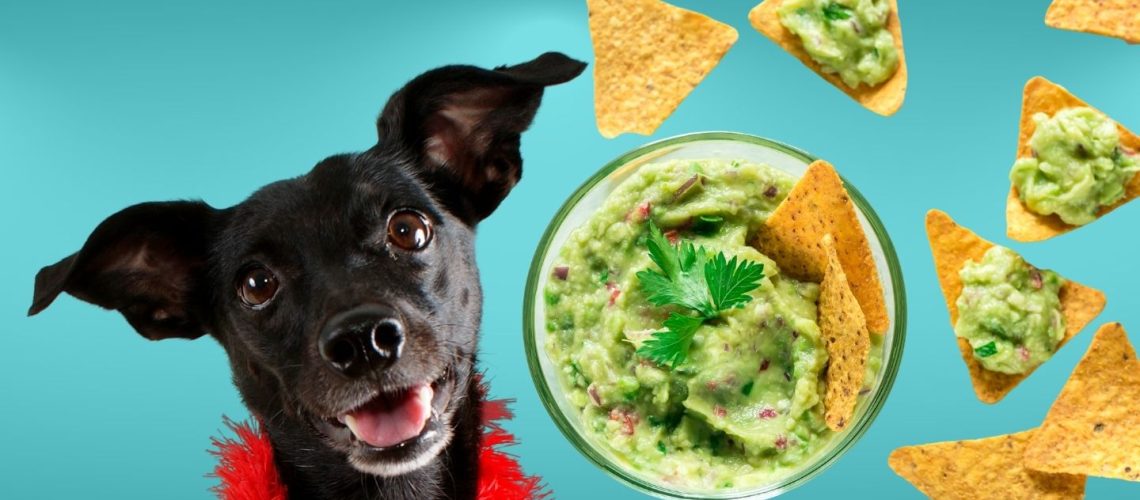The short answer is no; dogs should not eat guacamole. Avocado, the main ingredient in guacamole, is one of the most toxic human foods for dogs. To better understand why guacamole is harmful to dogs and what safe alternatives there are, let's dive deeper into the topic.
Understanding Guacamole and its Ingredients
Guacamole is a popular dip made primarily from avocados, often mixed with ingredients such as onions, garlic, tomatoes, lime juice, and spices. While many of these ingredients are healthy for humans, they can be quite harmful to our canine friends.
Common Misconceptions About Dogs and Human Food
Many people believe that dogs can eat most human foods without issue. However, this is not true, as some ingredients can be dangerous for dogs to consume. It's essential to know which foods are safe to share with your furry friend and which should be avoided.
Why Guacamole Is Harmful to Dogs
The Toxicity of Avocado
Persin and its Effects on Dogs
Avocados contain a fungicidal toxin called persin, which can cause vomiting and diarrhea in dogs if ingested. While the amount of persin present in avocados might not be enough to cause significant harm to your dog if they only consume a small amount, it's best to avoid giving them avocado altogether.
The Dangers of Avocado Pits
In addition to persin, the pits of avocados pose a choking hazard for dogs and can cause blockages in their digestive tracts if swallowed.
Onions and Garlic in Guacamole
The Impact on Canine Blood Cells
Onions and garlic, both common ingredients in guacamole, are toxic to dogs as they contain compounds that can damage and destroy their red blood cells, leading to anemia.
Recognizing the Symptoms of Anemia in Dogs
If you suspect your dog has consumed a significant amount of onions or garlic, watch for symptoms of anemia such as pale gums, lethargy, and rapid breathing.
Other Harmful Ingredients in Guacamole
Salt and Its Effects on Dog Health
Guacamole often contains salt, which can lead to dehydration, kidney issues, and even salt poisoning in dogs if consumed in excessive amounts.
Spices and Their Toxicity to Dogs
Some spices commonly added to guacamole might also be harmful to dogs, causing digestive upset or other health issues.
What to Do If Your Dog Ingests Guacamole
Immediate Steps to Take
If your dog has eaten guacamole, it's important to remain calm and assess the situation. Determine how much guacamole they consumed and keep an eye out for any adverse reactions.
Monitoring Your Dog's Health
Keep a close eye on your dog for signs of discomfort, vomiting, diarrhea, or other symptoms mentioned earlier. Make sure they have access to fresh water to help combat dehydration.
When to Seek Veterinary Help
If your dog shows severe symptoms, consumed a large amount of guacamole, or has a history of health issues, contact your veterinarian immediately for advice on how to proceed.
Safe and Healthy Snack Alternatives for Dogs
Fruits and Vegetables Dogs Can Eat
Apples, Blueberries, and Other Dog-Friendly Fruits
Apples (without seeds or stems), blueberries, and bananas are safe fruits for dogs to enjoy in moderation.
Carrots, Green Beans, and Other Dog-Friendly Vegetables
Dogs can benefit from eating vegetables such as carrots, green beans, and cucumbers, which provide essential nutrients and are easy to digest.
Lean Protein Options for Dogs
Cooked, Unseasoned Chicken or Turkey
Plain cooked chicken or turkey, without salt or seasoning, makes for a healthy protein treat for dogs.
Fish and Its Benefits for Dogs
Fish such as salmon and tuna are rich in omega-3 fatty acids, beneficial for your dog's skin and coat health.
Dog-Friendly Treat Recipes
- Homemade Peanut Butter Dog Treats
- Fruit and Veggie Dog Treats
Tips for Feeding Your Dog Human Foods Safely
Understanding Your Dog's Dietary Needs
Know your dog's unique dietary requirements, including any allergies or specific health concerns.
Foods to Avoid at All Costs
Never feed your dog foods such as chocolate, grapes, raisins, xylitol (a sugar substitute found in many products), or alcohol, as they can be extremely toxic.
The Importance of Moderation and Portion Control
When giving your dog human food, always practice moderation and portion control to ensure they maintain a balanced diet and don't become overweight.
Conclusion
Guacamole poses a significant risk to your dog's health due to the toxic ingredients it often contains, such as avocado, onions, and garlic. Instead, treat your canine companion with safe, healthy alternatives like dog-friendly fruits, vegetables, and lean proteins. Always consult with your veterinarian before introducing any new foods into your dog's diet.











